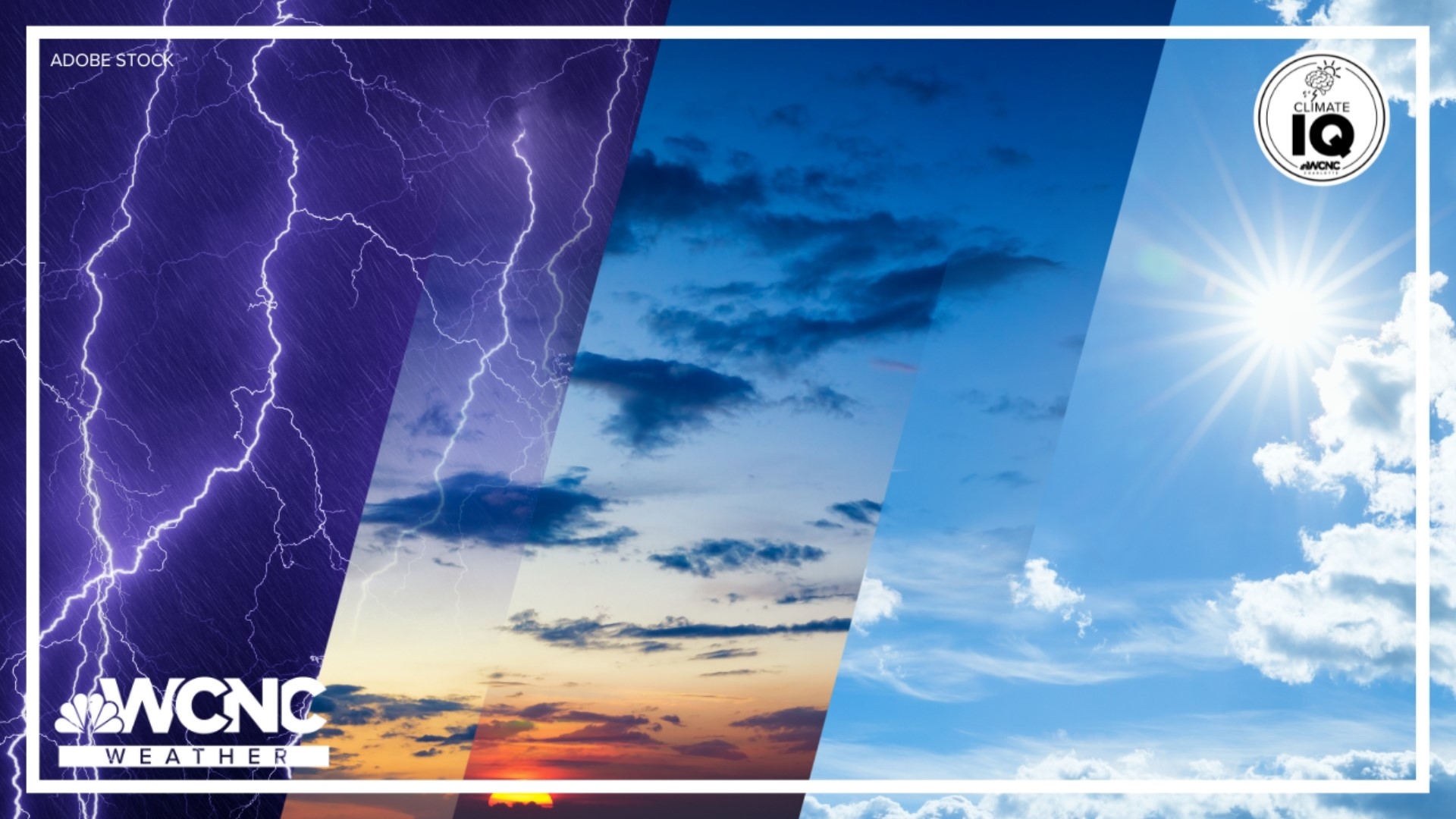CHARLOTTE, N.C. — Scientists know 2023 will be the hottest year on record across the globe and December isn’t even over.
To top it off – the last 10 consecutive years globally have been the warmest 10 on record.
In Charlotte, we had notable highs of our own. The Queen City kicked off the year breaking the all-time record warmest February, with an average temperature of 54 degrees for the month.
But winter chill is critical for fruit crops across the Carolinas to break dormancy. If it gets warm too soon or the chill requirement is met early, plants may bloom early which adds to the risk of freeze or frost damage.
This is exactly what happened in the spring, when a late-season cold snap led to the demise of local strawberry and peach crops. Less local produce to purchase at the grocery store can cause already-high prices to rise even more.
Did you buy stock in tissues this year? Maybe you should’ve! Another large temperature swing sprung allergy season into action – it was the earliest start to pollen season on record.
Rainfall patterns were far from normal in 2023. Long dry spells led to significant drought conditions by October and weeks-long burn bans by November.
PREVIOUS COVERAGE: Burning restrictions lifted for 30 North Carolina counties
Parts of the Charlotte metro hadn’t been that dry since September 2008, when a year-long period of water conservation finally ended across the region.
When we do get heavy rain, the Carolinas are uniquely prone to flooding due to the hilly landscapes and proximity to multiple rivers and lakes. This is especially prevalent during the fall and winter months.
In Charlotte, this risk is made even worse by how fast we’re growing and building as a city and population.
Speaking of fall, who in the Carolinas doesn’t love to sip a pumpkin-spice latte and look at gorgeous foliage? Sadly, the season was cut about one-and-a-half weeks short this year due to a warmer-than-normal September.
Leaf peeping brings approximately $1 billion to North Carolina tourism every year, so cutting that number can be harsh on our neighbor’s finances.
For the latest weather alerts, download the WCNC Charlotte mobile app and enable push notifications.
These silent events are less noticeable on a daily basis but can have more drastic long-term impacts. And they are all symptoms of climate change.
The difference between weather and climate is this: Weather is what’s happening now, while climate is a change over a long period of time.
While we cannot chalk up every small inconvenience to our changing earth, the science tells us these events – such as extreme droughts, intense rainfall, extreme temperature fluctuations – are becoming more common.
Contact Brittany Van Voorhees at bvanvoorhe@wcnc.com and follow her on Facebook, X and Instagram.
WCNC Charlotte’s Weather IQ YouTube channel gives detailed explainers from the WCNC Charlotte meteorologists to help you learn and understand weather, climate and science. Watch previous stories where you can raise your Weather IQ in the YouTube playlist below and subscribe to get updated when new videos are uploaded.

